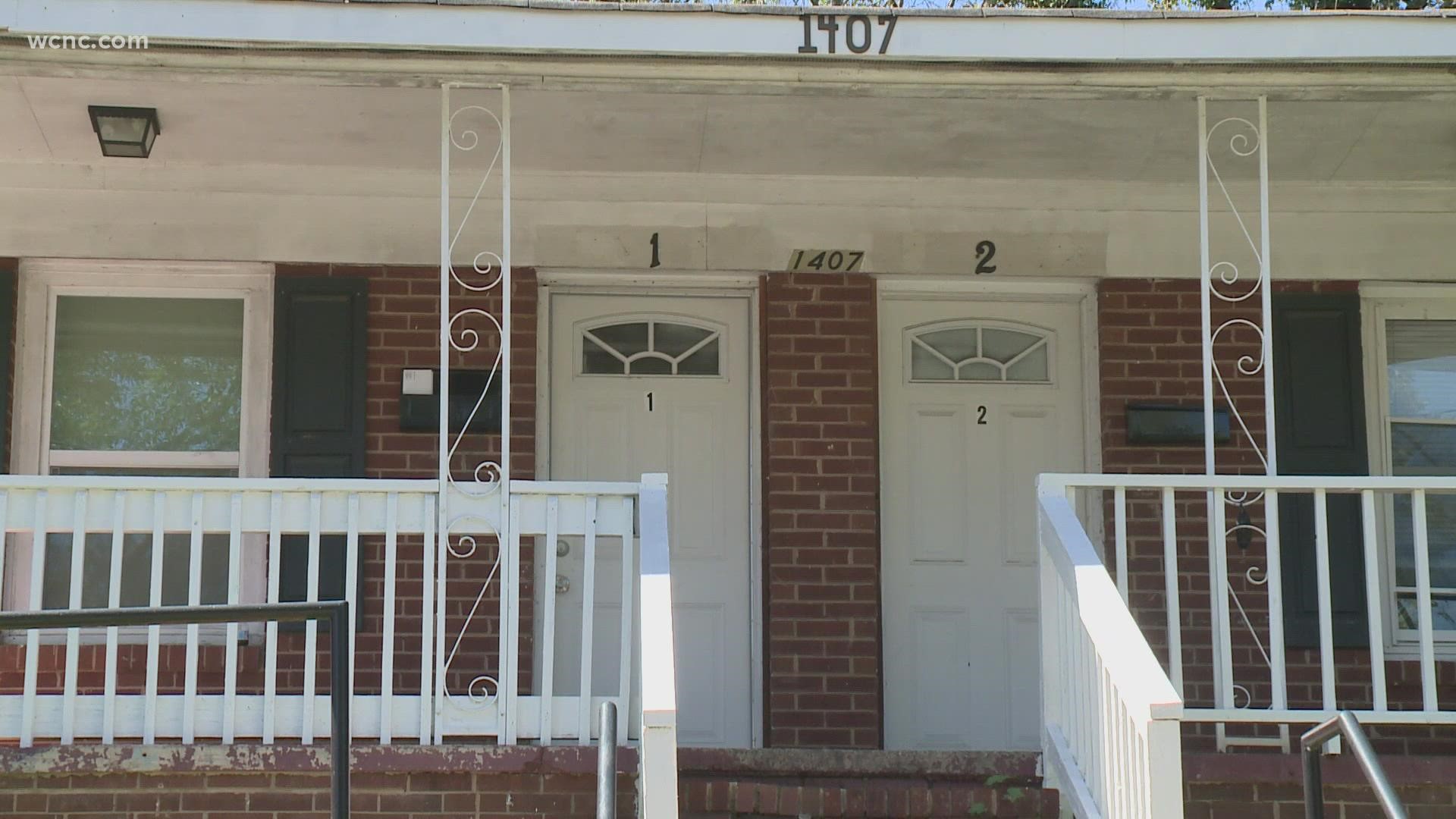CHARLOTTE, N.C. — In 2020, Charlotte’s homeless population was hard to ignore as hundreds set up an encampment just north of Uptown, dubbed tent city.
But in February 2021 it all came to an end. Mecklenburg County officials shut it down, citing a rat infestation, and instead offered each resident a room at a hotel.
“So, we had 215 individuals who were moved from the encampment to the two hotels,” said Karen Pelletier, who oversaw the initiative, part of Housing Strategy, Innovation, & Alignment with Mecklenburg County Community Support Services.
Pelletier said residents were matched with mental health and addiction services and given 90 days to find a job, save up, and be matched with a permanent housing solution. The county later extended their deadline to Sept. 30 -- a deadline now less than a week away.
Thursday, WCNC Charlotte spoke to Pelletier to see how many remain at the hotel.
“There are 12 people at that hotel who our community does not have a housing solution for and that’s just because their level of need is so high, they’re chronically homeless, they’re experiencing severe and persistent mental illness,” Pelletier said.
Others, she said, have moved on.
“Twelve people have gone to jail from the hotel and four people have passed away,” Pelletier said. “Fifty-one people have exited to unsheltered homelessness and that’s due to either illegal activity or unsafe behaviors.”
But making it all worthwhile, Pelletier says through the help of non-profit community agencies, 37 people have moved into permanent housing.
Kapone Williams is one of them.
“It was rough, a rough experience,” said Williams, who became homeless after losing his job and both of his parents during the pandemic.
Williams first lived in tent city, then at the county’s hotel. But just three weeks ago, Williams was handed keys to his new apartment.
“Oh, that was the best day of my life,” he said.
Pelletier said she considers the hotel project a success.
“To me, the biggest lesson has been the access to services -- and housing is a huge piece of that – but it is also that access to substance use treatment, to mental health support, to peer support that can be consistent because consistency is how we build trust and when you’re living outside it’s hard to have that consistency,” Pelletier said.
She said the hotel provided that consistency.
But the county is not alone in helping the homeless get on their feet. In April 2020, nonprofit organization Heal Charlotte also turned a North Charlotte hotel into an emergency shelter, housing 21 families, with a combined 47 children.
“You have the men’s shelter, you have the women and kids shelter, you have Safe Alliance that does domestic violence,” Heal Charlotte founder Greg Jackson said.
His organization was the first to allow men, women and kids to stay together.
“Yeah, we kept that family unit together,” Jackson said.
In other cases, Jackson said, the hotel enabled families who had been separated by homelessness to reunite.
“Maybe their wife was moving from couch to couch while they were in a tent or in their car and then by us being able to pay for the lodging fees and provide the shelter, now that family can now reunite that was separated through homelessness,” Jackson said.
At entry, Jackson says 86% of families were at imminent risk of homelessness and 14% were homeless. He says of the 86%, all were living in a hotel or shelter program prior to enrollment. Additionally, 61% of individuals were homeless for more than 90 days.
Jackson said, not only did his nonprofit pay for the hotel rooms, allowing families to acquire savings to transition into permanent housing, but they also mitigated the cost of food by partnering with local restaurants that provided meals to families and brought in youth and family services and tutors for the kids.
“We partnered with E2D so each of the families had laptops, so families were able to break that digital divide,” Jackson said. “Parents could work from the hotel and kids were able to get on afterschool programming through Zoom.”
By the time the emergency shelter ended in June 2021, Jackson says they helped 14 individuals find a job, and 43% found permanent housing.
Now, Jackson and Heal Charlotte have a bigger mission, to make the emergency hotel shelter a permanent one. They’re looking to raise more than $6 million to buy the North Charlotte hotel.
“For us to be able to have a unified, one centralized location where transitional living, youth development, workforce development and a safety net of organizations can be with the families that we serve," he said.
Jackson says they’re close to reaching $1 million but still have a long way to go to reach their goal. They are accepting donations from those interested in assisting, click here for more information.
Contact Ashley Daley at adaley@wcnc.com and follow her on Facebook, Instagram and Twitter.

